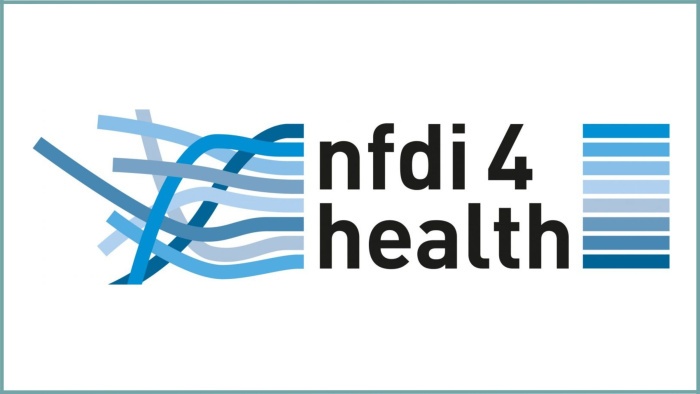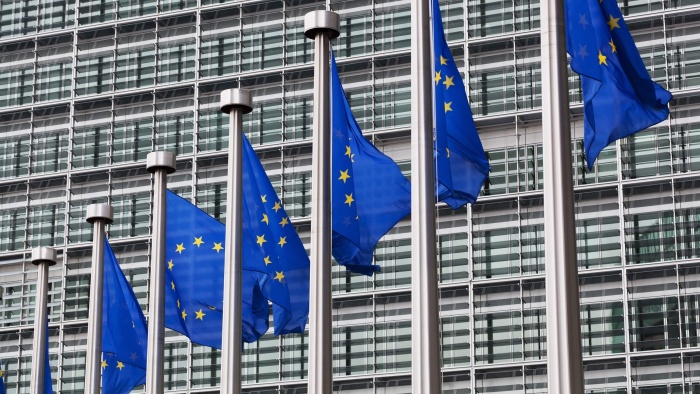German Medical Network Researchers with New Board
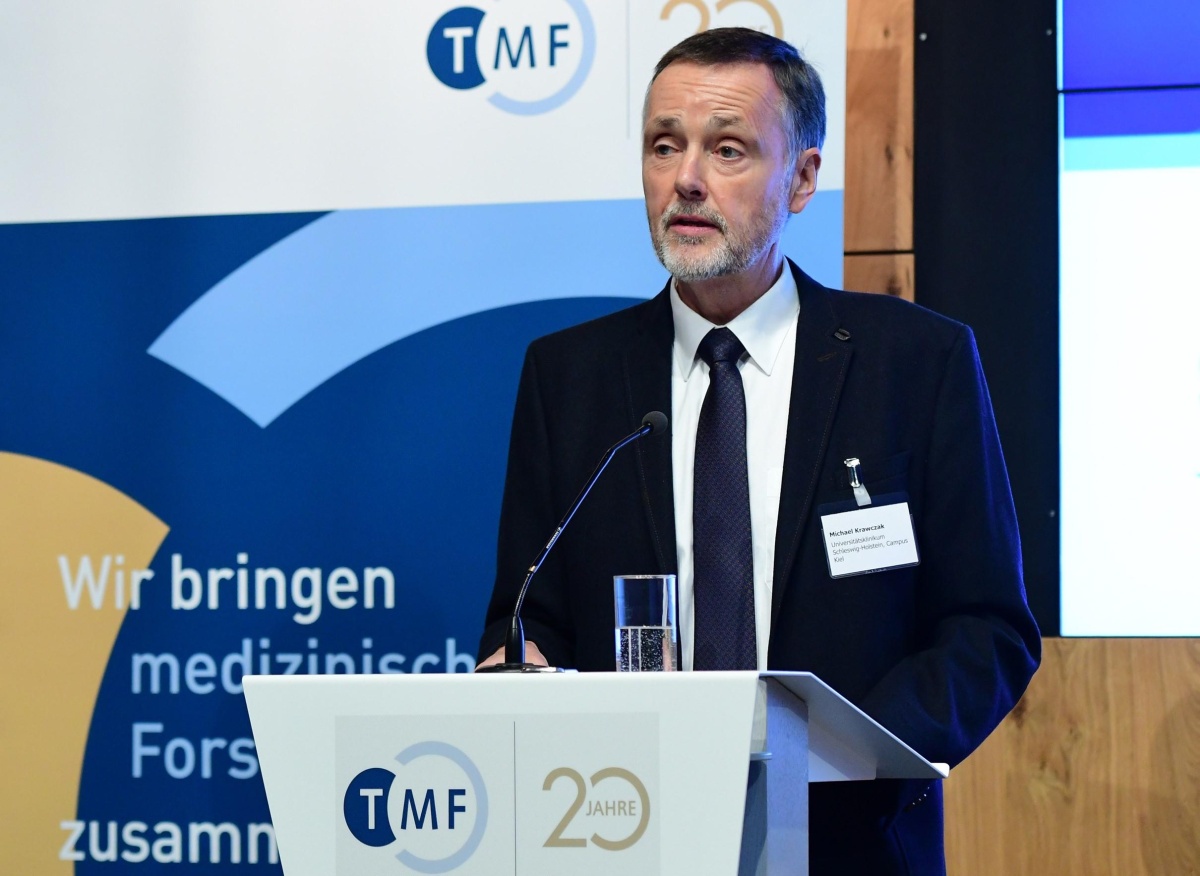
Prof. Dr. Michael Krawczak. © TMF
Due to the SARS-CoV-2 epidemic, the medical network researchers of Germany united in the Technology and Methods Platform for Networked Medical Research – TMF, held a virtual general meeting today. "Since its inception, the TMF has embraced digital collaboration; it's almost part of its 'DNA,'" said the TMF’s Managing Director Sebastian C. Semler. "However, we value nothing more than personal contact and exchange with the member and hope very much to be able to invite to a regular TMF annual congress again next year."
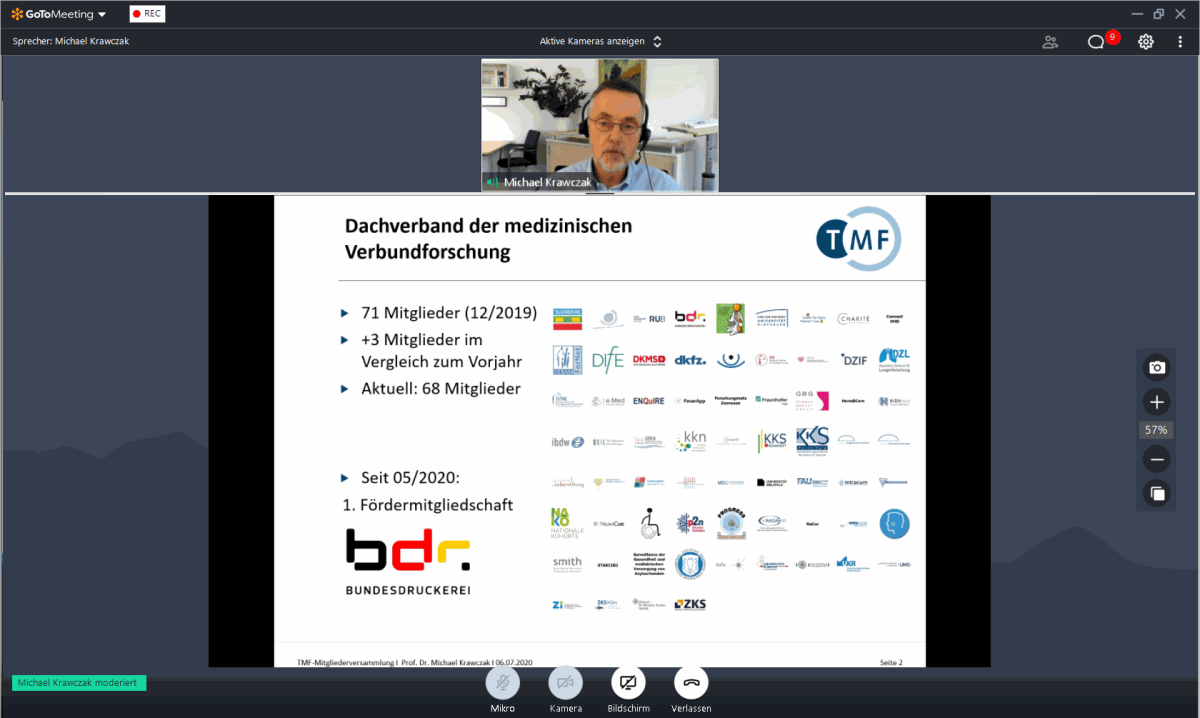
Prof. Dr. Michael Krawczak - TMF General Assembly 2020 © TMF
The members of the TMF – including numerous federally funded network research projects, institutions of German university medicine, clinical study centers, as well as non-university research institutes such as the German Centers for Health Research – elected a new board at the general meeting. The outgoing chairman of the board, Prof. Dr. Michael Krawczak (popgen 2.0 Network; University Medical Center Schleswig-Holstein, Campus Kiel), along with his deputies PD Dr. Dr. Michael Kiehntopf (STAKI2b2; University Hospital Jena) and Prof. Dr. med. Wolfgang Hoffmann, MPH (NAKO Health Study; University Medicine Greifswald), were re-elected to the board. The election of the new executive board will take place as stipulated by the statutes at the constitutive meeting of the board. Also re-elected were PD Dr. Karoline I. Gaede (German Center for Lung Research; Borstel Research Center), Prof. Dr. Thomas Ganslandt (MIRACUM Consortium of the Medical Informatics Initiative; University Medicine Mannheim), Prof. Dr. Lothar Kreienbrock (Connect One Health Data for Integrated Disease Prevention; University of Veterinary Medicine Hannover), Prof. Dr. Rainer Röhrig (Faculty of Medicine, RWTH Aachen University), and Prof. Dr. André Scherag (SMITH Consortium of the Medical Informatics Initiative; University Hospital Jena). Prof. Dr. med. Rita Schmutzler (HerediCaRe, University Hospital Cologne) is joining the board for the first time.
Prof. Dr. med. Schmutzler is the director of the Center for Familial Breast and Ovarian Cancer at the University Hospital Cologne. In the TMF board, she aims to contribute particularly to the further development of clinical registries for health services research. A special focus is on the requirements for data protection and the integration of clinical and genetic data for the purpose of generating new knowledge through "big data" analyses.
The board member, Prof. Dr. Peter Schirmacher (German Center for Infection Research; Heidelberg University), did not run for another term. Prof. Dr. Michael Krawczak thanked him for his commitment and continuous good cooperation: "In the six years of his board membership, Prof. Dr. Schirmacher has enriched the TMF with his scientific expertise, especially in the areas of molecular tumor diagnostics, biobanking, and digital image analysis. Through his dedication, valuable knowledge has been shared in these areas. The remarkable span of two decades of continuous work at the TMF in the project-driven scientific environment would be unthinkable without the commitment of many scientists who, despite their diverse obligations in healthcare, research, and teaching, volunteer their expertise to the TMF."
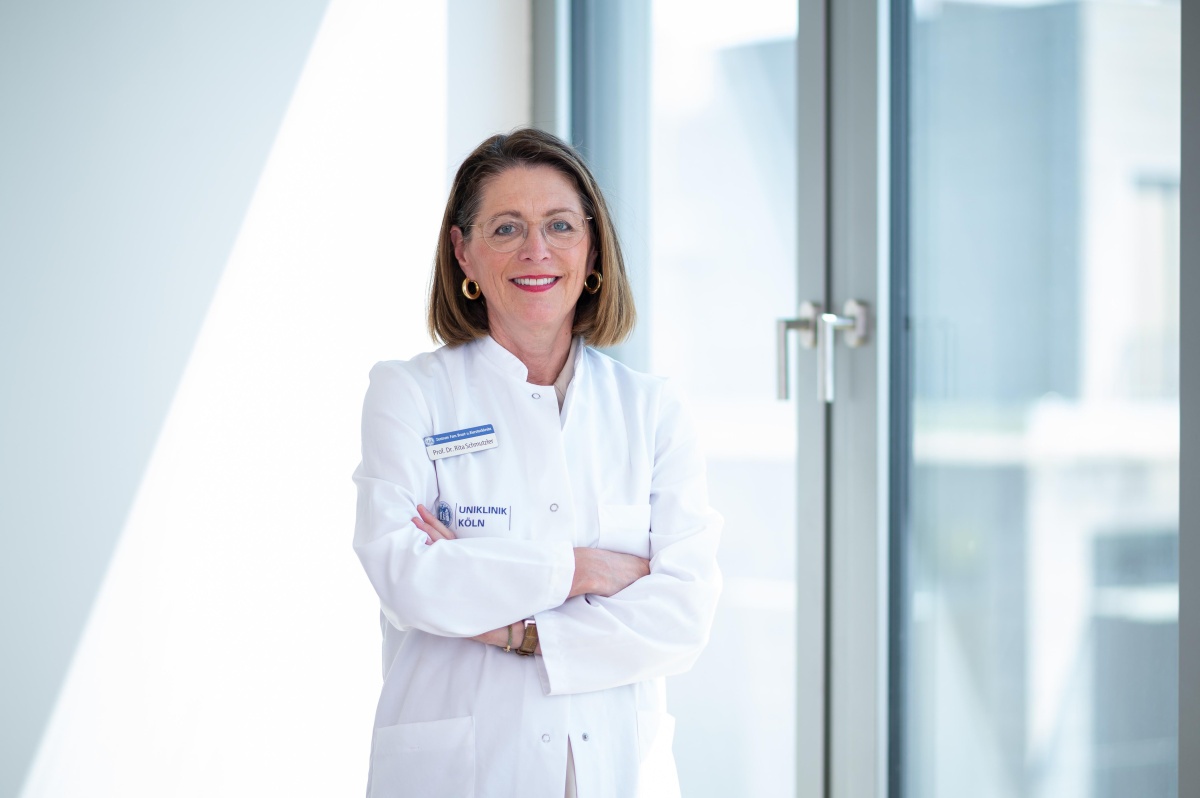
Prof. Dr. med. Schmutzler, Director of the Center for Familial Breast and Ovarian Cancer at the University Hospital Cologne. © TMF
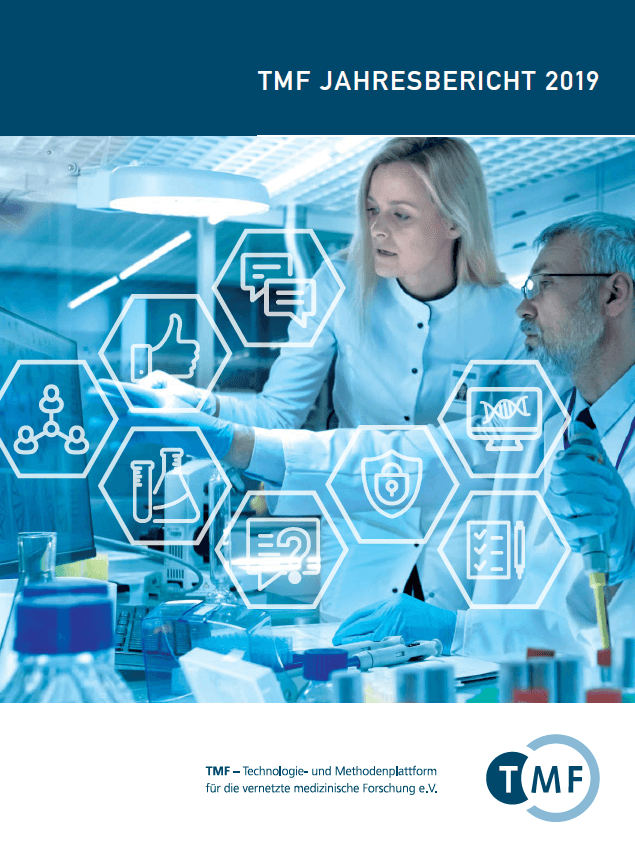
The TMF Annual Report 2019. © TMF
The TMF Annual Report 2019: Progress in the Use of Healthcare Data for Medical Research and New Requirements for Data Quality
During the general meeting, Prof. Krawczak also presented the TMF Annual Report 2019: "The TMF has always successfully adapted to changing technical and organizational needs in networked research. This will not change in the future. In September 2019, the TMF’s new workgroup 'Data Quality and Transparency' started its work. Applications in 'Artificial Intelligence' are particularly dependent on high-quality training data. Their societal acceptance also depends to a large extent on researchers building trust in responsible data use."
The TMF and its workshops and conferences are repeatedly drivers and pace-setters for research policy initiatives. With the TMF Health Registry Summit held for the first time in 2019 and a workshop on entering genomic medicine in Germany, the TMF organized two exchange formats in 2019 whose concerns could be underpinned shortly after that by additional expert opinions for the Federal Ministry of Health. Under the name genomDE, a position for a platform for whole-genome sequencing – closely linking research and healthcare – was thus established in the federal budget in the same year.
Overall, 2019 was an important year in political Berlin for the TMF's core concerns. The Federal Government showed determination to re-regulate the secondary use of medical data in Germany in a research-friendly manner in the SGB V. The TMF has been involved as the representative of medical networked research in all phases of this political process. It is also legally involved in determining the content of the future electronic patient record. As the accompanying structure of the Medical Informatics Initiative of the Federal Ministry of Education and Research (BMBF), the TMF intensively and successfully accompanied the efforts for a German pilot license of the terminology SNOMED CT last year. In early 2020, the TMF then issued the first licenses to users as the National Release Center.
In addition to continuing the accompanying projects of the Medical Informatics Initiative, the registries of health services research, and the TMF-related DFG projects, the TMF will also support the BMBF-funded new DESAM-ForNet as a research practice network in primary care starting this year. Thus, under the umbrella of the TMF, there is a unique opportunity to focus on and link data structures in medicine truly intersectorally.
The TMF Annual Report is available online as an ePaper and PDF.
SARS-CoV-2 Epidemic as Litmus Test for Sustainability of Research Data Infrastructures
Many TMF members are currently involved in research efforts to cope with the SARS-CoV-2 epidemic. The TMF also participates in these efforts by supporting the Medical Informatics Initiative of the BMBF and the National Research Network of German university medicine in building the necessary databases and analysis platforms: "Fortunately, the German healthcare system has proven to be very efficient in coping with the crisis. Nevertheless, the SARS-CoV-2 epidemic has shown us, as if under a magnifying glass, that there are still significant deficiencies in the availability and linkage of medical data in Germany. Therefore, it is important, in addition to coping with the acute epidemic with the financial and human resources deployed, to lay the foundations for constructing and expanding a sustainable data infrastructure for the future. The TMF will significantly contribute to this with its know-how from 20 years," concludes the TMF’s Managing Director Semler.
Background
The TMF - Technology and Methods Platform for Networked Medical Research (TMF) is Germany's umbrella organization for medical networked research. Launched on May 1, 1999, at the initiative of the Federal Ministry of Education and Research, the TMF has been bringing together researchers from different disciplines to develop concepts, infrastructures, and methods for research. Organized as a non-profit association, the TMF makes these solutions freely and publicly available. In particular, large consortia and flagship projects such as the Medical Informatics Initiative are supported by the TMF both in terms of content and organizationally through sponsorship of accompanying structures. By pooling resources, the TMF makes an important contribution to efficient top medical research in Germany.
Press Contact
Stefan Rabe
Phone: 030 22 00 24 723
Mobile: 0173 6141663
E-mail: presse@tmf-ev.de
Further Information
